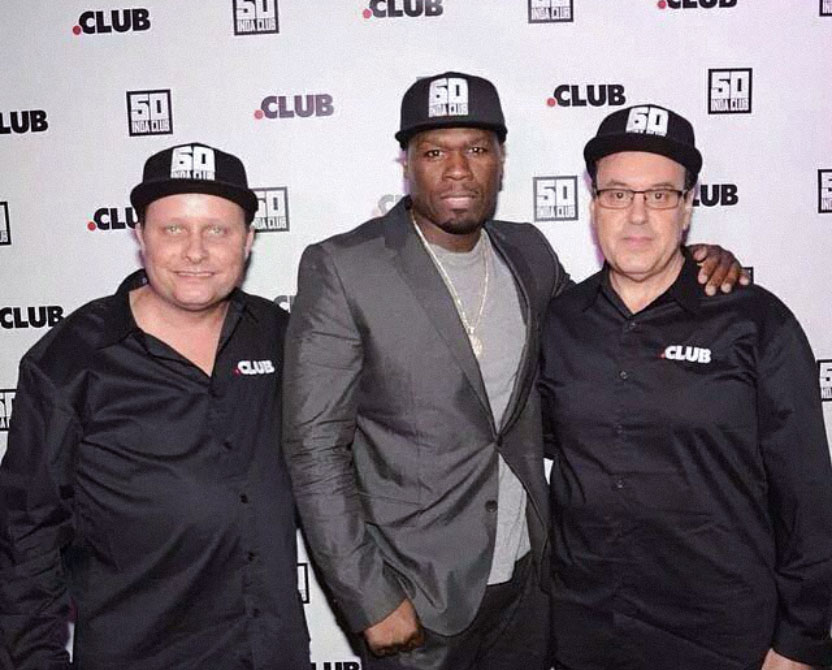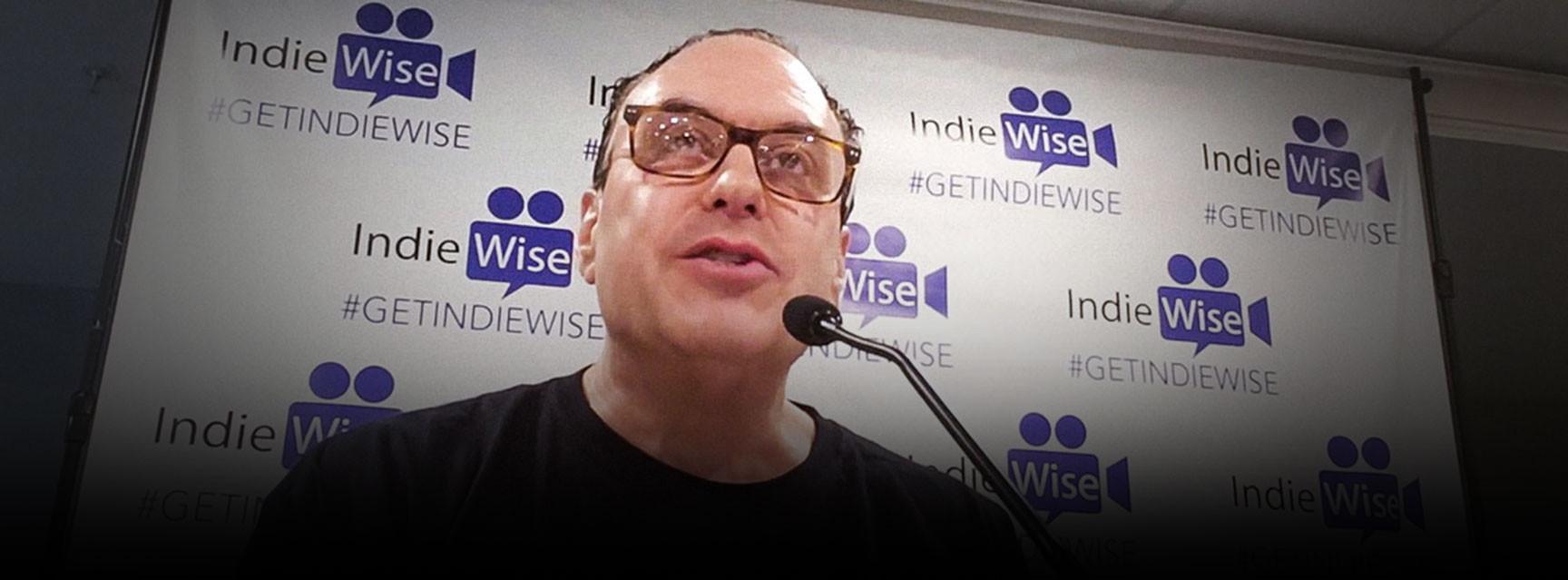
As a veteran tech executive, serial entrepreneur and co-founder of many companies, Jeffrey Sass has gathered experience in several diverse industries ranging from filmmaking to writing to computer games and marketing. He currently holds a major role as the Chief Marketing Officer of .club domains – a leading gTLD (generic Top Level Domain) in the world. He started his career in the 1980’s in filmmaking and due to the large breadth of knowledge acquired through taking on various interesting professions over the years and always being influenced by technology, he has a unique insight on the advancement and digitalization covering multiple industries.
StageYou: As entrepreneurs and startups would stand to benefit from your experience, could you share some lessons learned that can be relevant to them?
JEFF: Absolutely. I actually wrote a book about that very topic called ‘Everything I Learned about Business and Marketing, I Learned from The Toxic Avenger’. While I worked for the film studio Troma for over 7 years, The Toxic Avenger was a character in a series of low-budget action horror films that they made. In my book I draw many parallels comparing any film (be it an independent or a studio film) to a startup company.
Every filmmaker is in essence an entrepreneur and they go through everything that an entrepreneur does but just inside a shorter time frame. The film script becomes the business plan, funds need to be raised and film producer can be compared to the investor (who invests a combination of money, time and expertise), then you need staff and work must be organized to make a good film which, in this analogy, is the end product that the business would sell. The final stage is the getting the film to the audience through proper promotion and marketing.
StageYou: Could you delve further into the specifics of how to implement your lessons from film to the business world and startups in particular?
JEFF: There are quite a few: since a film is made in a small time period, it requires a lot more discipline to successfully complete as compared to a typical startup. Everything needs to be scheduled and done on a day-to-day basis. For a film, you need contingency plans in every situation because weather and other factors can affect your ability to shoot. For example, on a day when sudden rain restricts outdoor filming, you have to use the same actors and equipment to shoot another scene so as to not waste time and resources. I think many entrepreneurs don’t always think this way and try to follow just the one path without considering or preparing alternatives in case things go awry.
I learned very early on that while making a film, there were 3 essentials for a day of shooting – a camera, film in that camera and the actors. Without these being covered, it didn’t matter if you had a legendary director or an award-winning screenwriter. So during my time as a line producer, I made it a mandatory task to ensure that these important things were taken care of – sometimes even making special transport arrangements to guarantee that they were all there and on time.
As with the 3 main things needed for filming on a daily basis, I think entrepreneurs should figure out the daily essentials that will hinder the company’s progress if not dealt with, then make it a point to pay attention to them every day.
StageYou: From AirBnB to SpaceX, we hear about startups that have gone on to reach unicorn status. Would there be a comparative to this in film?
JEFF: Well, in my opinion it’s both yes and no. The unicorn status that you are referring to is the valuation of a privately held startup company. So, technically a company can have a $1 billion or more valuation and not function as a profitable business. It seems to me an odd thing to celebrate a company based on its perceived value. I used the word perceived because there are so many things that contribute to this valuation, especially of companies that are not yet in the public market. It’s based on the value or money that investors are willing to give the company. Compared to other standards, not necessarily every unicorn is a sustainable business because they can continue to burn through dollars at a higher and higher rate as they go through subsequent investment rounds.
In Hollywood there are blockbuster movies that make half a billion dollars or more in gross revenue worldwide. Those are the top movies, but those are actually generating a revenue of a billion dollars and it’s not just a valuation. In which case, that figure would be a more realistic measure or benchmark of success.
StageYou: Could you describe the distinctions between a film project versus a startup in the context of getting an investor?
JEFF: There are some similarities and also some differences in the sense that typically investors in movies get equity in that production in the form of a percentage of the profit, when compared to a startup, where investors get equity in the company and it’s not clear if the company is going to be profitable or not. That is the risk that the investor takes.
This will depend on the stage that the company is at the time that the investor comes in as well as the type of investor coming in. For example, if it’s venture capital, they may have a liquidation preference if things don’t go right.
The structure of the deals and contracts are a little different as well, but the similarities remain in the process of pitching and getting the investor interested and raising funds.
StageYou: How would you describe witnessing the digital transformation and the influence of video during your journey in the film industry?
JEFF: In the entertainment industry and certainly in the production side, it has changed dramatically. At the time I started out, I would walk into a studio and pay $500-600 per hour to use equipment that essentially does the same things as some of the software that comes built-in with your iPhone.
While I was in film editing, practices changed from physically cutting film with a razor and manually splicing it on a flat-bed editing platform, to the introduction of the first non-linear digital editing systems. Although at the time they required huge hard drives and the equipment filled an entire room, this was a real game changer.
The entry of the CD-ROM was at the point that traditional and interactive entertainment converged. Seeing how storytelling could change through an interactive medium is what encouraged me to move away from film and into the video and computer game industry.
StageYou: The introduction of the CD, computer games, interactive video, etc. led to a flourishing of the industry over the past few decades. What has its effects been and what future development do you anticipate?
JEFF: When sitting at a theatre and watching a film, content is presented to you in a linear fashion but with interactive entertainment, this changed to playing a computer game where the consumer is able to dictate the outcome. There have also been some experiments with interactive video where the viewer decides the path of the story.
‘Black Mirror: Bandersnatch’ is an interactive film in the science fiction series Black Mirror which was recently released on Netflix. It is a prime example where viewers can make decisions at certain points of the movie and control the story. Another somewhat older example was in Dragon’s Lair a movie/game in the early 1980s, which featured attractive visuals but as it was with the Laser Disc technology utilized, there were large and noticeable time delays once a decision was made by the user. Consequently users would have to wait for it to jump to the relevant section of the Laser Disc to resume play. In comparison, Bandersnatch is seamless in its transition, owing to the digital and streaming technology we have today.
The creative process of making an interactive movie would resemble game development more than a traditional movie, because of the presence of all the choices and alternate paths that come into play. I imagine that in the future with the help of artificial intelligence, the program could change the story that a user experiences based on his unique input in the sense that the actual number of possible experiences and endings that can happen would be infinite – making it a truly interactive video experience unique to each user.
To say the least, with digitalization today we have easy access to the tools needed to create content in an unprecedented way. On the other hand, even though this ability has been democratized, it doesn’t mean that all the content being created is of the same high quality and additionally there are still challenges to get distribution, attention and the correct audience for the content.
StageYou: In 1998 you co-founded BarPoint Inc., creating strategic business relationships with top players in mobile such as AT&T, Verizon, Cingular, etc. Could you elaborate on the business aspects of these alliances?
JEFF: BarPoint Inc. was an interesting company in the early steps of the mobile content industry and was backed up by a truly forward thinking idea. Starting in 1998, we went public in 1999. The aim was to bridge the gap between the physical and digital world primarily through the use of UPCs (barcodes). We built an application that allowed a user to enter the barcode of any product and get product information, price comparisons, reviews and in some instances the option to purchase through the phone directly.
Taking note that this was 1999, before there were any smartphones in the market, at a time when the web on the phone was in its infancy known as WAP (Wireless Application Protocol) and where Googling was not possible as it is today, our idea was very advanced and as a result we attracted all the major US phone carriers to add us.
Through the partnerships, we had enormous distribution and reach however, the idea was so ahead of its time that the number of users were very small. At that time people were more reluctant to use the web on the phone, much less make purchases through their phones.
The patented technology is still being used today, but with the widespread popularity of smartphones, the difference is that consumer behaviour has changed so much and people are open to using their phones in a way they weren’t in 1999. From a business perspective, what we didn’t properly take into account was the consumer behaviour – and this is something that I have learned over time in my career. The bottom line is that even though you may have a great technology, launching a successful tech based product has more to do with consumer behaviour and timing than the technology itself.
StageYou: You mentioned that content creation has been democratized from the perspective of the film maker. Have you any practical suggestions on how businesses can better utilize this?
JEFF: One of the more appealing things that come with this democracy and access is that in any company, you can take a look at your employees and possibly find a person who is good at photography or someone else who is a hobbyist videographer. Since it’s so easy to create content in terms of the equipment required and also because so much content is being consumed mainly due to social media and other outlets, what you can think about is that instead of using outside agencies for all of your content, a fair portion of it can be created by employees – even if it’s not in their job description.
They already know the company and are passionate about what it does as well as about creating video/photo content, so why not give them the opportunity to do that even if they do it in their own time? I have worked in companies where this has been attempted and the employees have been happy to see their creations being used for marketing purposes and consequently companies have found creative assets within their own ranks.
StageYou: From your expertise in video, podcasting, blogging, etc., what is your opinion on video as a tool in the digital landscape of today as well as for the future?
JEFF: Naturally, video is a very impactful medium of communication and most of the social media platforms are putting a lot more focus on it. Even LinkedIn as of late values original video content. Intelligently used video can play a big role in getting your company’s story or marketing message across as well as to give your audience a behind-the-scenes look into your company.
This aspect works well in our socially driven world and can foster a deeper connection between the customer and company without the relationship being solely about selling products. One example would be a video where customers can learn how the product is made, how it is checked for quality, etc. and the process can be as simple as someone filming it on a phone. Although some videos would be better if a professional takes it on, other times you can make an impact merely with a phone.
StageYou: As you are the CMO of .club domains, could you tell us a little about its mandate along with the business model?
JEFF: .club (DOT CLUB) is one of the new top-level domains (TLD). Just to clarify, a top level domain is the little bit on the right of the dot as in ‘.com’, ‘.org’ or ‘.biz’.
We applied for this from ICANN (Internet Corporation for Assigned Names and Numbers) and after a lot of hard work, negotiation and participating in an auction, we finally won the name.
We are the registry operator for .club and manage the underlying database, facilitating people from all over the world interested in a domain name ending with .club. The other aspect is sales and marketing: driving demand and building a global brand for the name.
The .club domain names are owned by us (the registry) and are purchased by customers (the registrants) through an intermediary such as GoDaddy, NameCheap, etc. (the registrar). Our business model also has two sides: high volume, low margin sales which are primarily for unique domains (example: www.jeffreysass.club) and can be purchased for about $15-20 annually. The other will be premium names which are low volume, high margin sales for domains having keywords or dictionary words which have a high value in terms of branding, search results, SEO and online marketing (example: www.coffee.club). These premium names can go for over $100,000. Our company generates revenue as each domain needs to be renewed annually.
StageYou: As you mentioned that you got the rights to the .club name at a high cost, what was the reasoning and justification for choosing this name in particular?
JEFF: The main person behind this idea was our CEO and founder Colin Campbell. He was in the web industry for a while, started up and also sold several companies and he recognized that the word ‘club’ has many advantages and would be a great investment as a domain name.
For one, it is a short and easy word that gives relevance and meaning to a website. For example, ‘yacht.club’ would give a totally different impression to ‘yacht.com’ or ‘yacht.shop’ and a company stands out as there are advantages in branding.
Next, it has acceptance and applications internationally – even non-english speaking countries worldwide use the word club and language doesn’t seem to dampen its popularity – which can be seen from our users from Germany in the west to China and Japan in the far east.
Lastly, it is generic – there is versatility in the word in that it can be used for book clubs, nightclubs, sports clubs, celebrity fan clubs, blogs and can represent any community sharing a common interest, passion or cause.
Colin was correct in his assessment which is apparent as .club has gathered over 1.6 million registrations globally and rank among the top in terms of popularity and we are number 1 in actual usage.
StageYou: As you do have experience in mobile marketing, branding, internet, social media, entrepreneurship etc. are there any points about digitalization you like to address in these areas?
JEFF: In my opinion, pretty much everything we do today is affected by the ripples of the digital revolution; whether it is the electric car you drive, the e-book you read on a Kindle or the work you do all day on a computer. Clearly this is the new norm.
I believe that at the end of the day, great marketing is all about good storytelling. When the caveman taught another to fashion a rock into an axe, he imparted that through a story.
Digitalization is a tool and an accelerant but it does not change many of the basic tenets of marketing.
As an old-school marketer myself, one of the things that keeps me up at night is that in today’s data driven world, marketing is becoming overwhelmed by data so much that it loses its soul. Although the tools for creation have drastically evolved, we must not abandon the essential narrative at its core which is what impacts and motivates.


Jeffrey Sass
Jeff has over 35 years of experience in the technology and entertainment industries and has co-founded several start-ups including mobile commerce pioneer BarPoint.com in 1999. Jeff joined the .CLUB team in March 2012, and has led the company’s marketing efforts throughout the process of acquiring and launching the .CLUB top level domain.
Previously, as Vice President, Chief Evangelist at Myxer from 2007 to 2012 Jeff played a significant role in growing the mobile entertainment company into one of the top 15 mobile websites in the U.S. He is a Co-Founder of Entrepreneur.Wiki, and Social Object Factory. Jeff has also written and produced for film and television and is the author of the entertaining marketing book, “Everything I Know about Business and Marketing, I Learned from THE TOXIC AVENGER.”
A graduate of Cornell University, Jeff is a frequent speaker and panelist on domain names, mobile marketing, digital music, entrepreneurship, branding, and social media. He has been an online instructor for the University of San Francisco’s Mobile Marketing Program. Jeff has had articles published in AdAge, Forbes, Entrepreneur, DMNews, Mobile Marketer, iMedia Connection and others. He was a co-host of the Cast of Dads podcast and has written regularly for a number of blogs including Dadomatic.com, SocialNetworkingRehab.com, and his personal blog, Sassholes! He also served as an Intel Advisor and Sony Digidad and is currently a member of the board of directors of The Domain Name Association (TheDNA.org), and Tech Lauderdale/SFTA (SouthFloridaTech.org).






